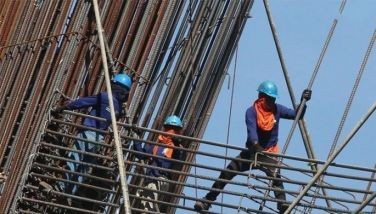Resetting education for 4IR

Steve Jobs, co-founder of Apple Inc. and regarded as a pioneer in the personal computer era, had said in one 1995 interview that “I think everybody in this country should learn how to program a computer, should learn a computer language, because it teaches you how to think.”
At that time, Jobs had no inkling of what artificial intelligence (AI) or the coming of the 4th Industrial Revolution (4IR) was. The Web and internet were just getting off the ground, and social media was an unheard of phrase.
(The full video, “Steve Jobs: The Lost Interview,” is available via iTunes and Amazon Video on Demand. It contains more than a handful more “prophesies” about digital technology, and his views more than two decades ago only proves the man to be a visionary.)
Job’s thoughts about computer learning has never been more relevant today as the world prepares for the radical changes that 4IR would bring to just about every aspect of modern life.
Last week, and not too late, the Philippine Chamber of Commerce and Industry (PCCI) called for lawmakers to push for the creation of a congressional commission on education that would create the ideal work force for the 4IR era.
While the PCCI called for a review of tri-focalization, or the existence of three separate government agencies supervising the country’s education program, resetting Philippine education for 4IR could mean heeding Steve Job’s advice that everybody – from children to working adults – need to learn about how computers think.
Better thinkers
This is not to say that everyone will become a computer programmer or data scientist. In the 4IR world, people will need to know how to read, analyze, and use the deluge of information that comes with digitalization – not just to survive, but more so to thrive.
The rudiments of better thinking have to be inscribed in the early education of our youngsters. The earlier they are exposed to computer languages, the better thinkers they will be as they navigate the years in school and when they are working.
Computer coding, for example, has been regarded as a great tool for kids to develop logical thinking and analytical skills. Children not only are able to understand better what they are studying, but also to apply what they learn when confronted with problems.
This could very well be the key to markedly improving the low mean scores that Filipino students got in reading comprehension, science, and math compared to those in many other countries as published in the Program for International Student Assessment (PISA) last year.
The 4IR world will also require millions of workers who have advance knowledge of programming, and those who have grown up with coding will be more confident of pursuing these jobs that today are considered highly specialized.
People with coding skills, even if they are not programmers, are also regarded as better corroborators or team players at work, whether they are working in sales and marketing, the production side, or with advertising and communications.
Concerns of inclusiveness
Teaching coding to young students, of course, raises a number of inclusiveness issues. The fact still remains that majority of children do not have computers or smartphones, or have access to stable internet connections.
But these should be part of the issues that the proposed congressional commission on education needs to tackle. What is imperative is that the learning system of today must be radically changed at the soonest possible time if the country wants to get ahead in the 4IR age.
The proposed commission will have to lay a plan that works around current limitations, but without losing sight of what needs to be achieved. This will involve tight coordination with other stakeholder government agencies like the Department of Science and Technology and the Department of Information and Communications Technology in appropriate programs.
In the same breath, a deeper look into the effectiveness of curriculums and programs being developed by the Department of Education (DepEd), the Technical Education and Skills Development Authority (TESDA), and the Commission on Higher Education (CHEd) would be timely.
DepEd, which supervises science high schools in the country in coordination with local governments, has failed to produce graduates that pass the mark. An assessment by the Science Education Institute showed a marked difference in the quality of graduates of the Department of Science and Technology-supervised Philippine Science High Schools versus those from the DepEd science high schools.
Addressing the great divide
This assessment shows the great divide in the educational system’s science, technology, engineering, and math (STEM) learning, made all the more glaring by the fact that many of the graduates of the local science high schools do not pursue related courses in college.
Similarly, a more in-depth study of the vocational school system must be tackled. Technology courses, in particular, must be subjected to a more laddered learning approach fit for students who have opted to pursue this approach because of financial reasons.
The proposed commission will need all the help it can get, and the sooner that a formidable panel of consultants from both the private and public sector is organized to help it, the better we can be assured that all the billions of pesos that are allocated to and spent on the country’s education sector is put to good use.
Facebook and Twitter
We are actively using two social networking websites to reach out more often and even interact with and engage our readers, friends and colleagues in the various areas of interest that I tackle in my column. Please like us on www.facebook.com/ReyGamboa and follow us on www.twitter.com/ReyGamboa.
Should you wish to share any insights, write me at Link Edge, 25th Floor, 139 Corporate Center, Valero Street, Salcedo Village, 1227 Makati City. Or e-mail me at [email protected]. For a compilation of previous articles, visit www.BizlinksPhilippines.net.
- Latest
- Trending































